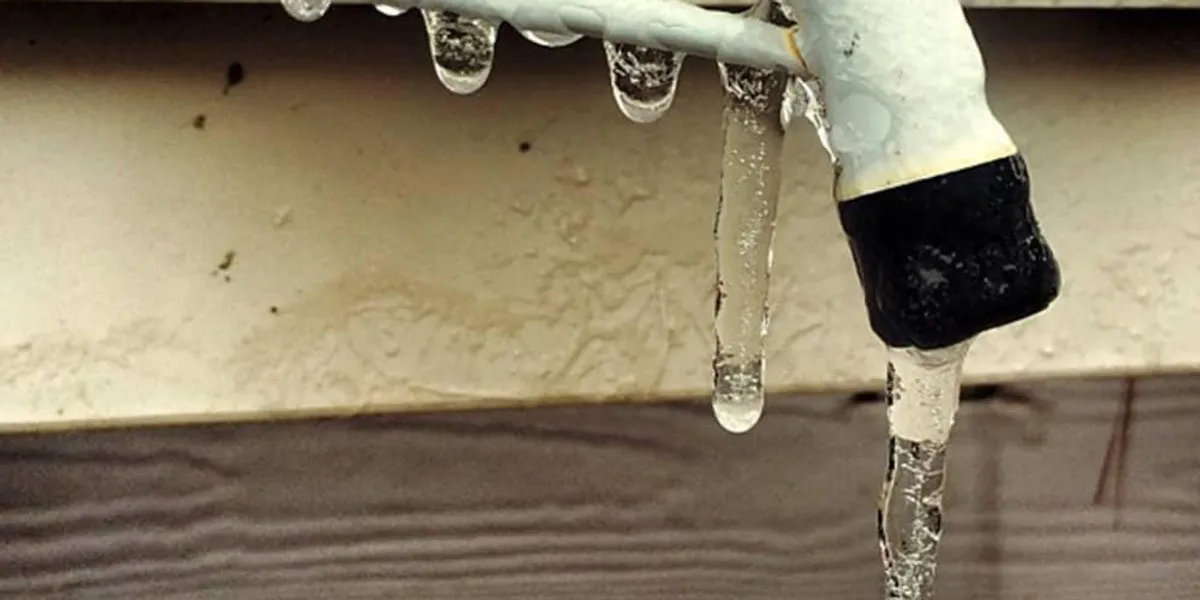Important Tips for Avoiding Frozen Plumbing in Winter Seasons
Important Tips for Avoiding Frozen Plumbing in Winter Seasons
Blog Article
Everybody is bound to have their own opinion with regards to How to Prevent Your Pipes From Freezing.

Cold weather can ruin your plumbing, particularly by freezing pipelines. Here's just how to prevent it from taking place and what to do if it does.
Intro
As temperatures drop, the danger of icy pipes boosts, potentially causing pricey repair work and water damage. Understanding just how to avoid icy pipes is vital for house owners in cool environments.
Understanding Icy Pipes
What causes pipes to freeze?
Pipelines freeze when exposed to temperatures listed below 32 ° F (0 ° C) for expanded durations. As water inside the pipes ices up, it broadens, putting pressure on the pipeline wall surfaces and potentially creating them to rupture.
Threats and damages
Icy pipes can result in supply of water disturbances, residential property damage, and expensive fixings. Burst pipelines can flood homes and cause considerable structural damage.
Indicators of Frozen Pipeline
Recognizing icy pipes early can prevent them from breaking.
Just how to identify icy pipes
Look for decreased water circulation from faucets, uncommon odors or sounds from pipes, and noticeable frost on exposed pipes.
Avoidance Tips
Shielding vulnerable pipelines
Cover pipelines in insulation sleeves or utilize heat tape to shield them from freezing temperatures. Focus on pipes in unheated or external locations of the home.
Home heating strategies
Keep interior spaces properly heated up, especially areas with pipes. Open up closet doors to allow cozy air to flow around pipelines under sinks.
Safeguarding Exterior Pipes
Yard hose pipes and outside faucets
Separate and drain pipes yard pipes prior to wintertime. Mount frost-proof faucets or cover outside faucets with shielded caps.
What to Do If Your Pipelines Freeze
Immediate activities to take
If you believe frozen pipes, keep faucets open to eliminate pressure as the ice thaws. Use a hairdryer or towels taken in warm water to thaw pipes gradually.
Long-Term Solutions
Structural adjustments
Consider rerouting pipes far from exterior wall surfaces or unheated areas. Include additional insulation to attic rooms, basements, and crawl spaces.
Upgrading insulation
Invest in high-grade insulation for pipelines, attic rooms, and wall surfaces. Appropriate insulation aids keep consistent temperature levels and decreases the danger of icy pipes.
Conclusion
Protecting against frozen pipelines needs aggressive procedures and quick actions. By comprehending the causes, signs, and safety nets, property owners can shield their pipes during winter.
Helpful Tips to Prevent Frozen Pipes this Winter
UNDERSTANDING THE BASICS: WHY PIPES FREEZE AND WHY IT’S A PROBLEM
Water freezing inside pipes is common during the winter months, but understanding why pipes freeze, and the potential problems it can cause is crucial in preventing such incidents. This section will delve into the basics of why pipes freeze and the associated problems that may arise.
THE SCIENCE BEHIND FROZEN PIPES
When water reaches freezing temperatures, it undergoes a physical transformation and solidifies into ice. This expansion of water as it freezes is the primary reason pipes can burst. As the water inside the pipe freezes, it expands, creating immense pressure on the walls. If the pressure becomes too great, the pipe can crack or rupture, leading to leaks and water damage.
FACTORS THAT CONTRIBUTE TO PIPE FREEZING
Low Temperatures: Extremely cold weather, especially below freezing, increases the risk of pipes freezing. Uninsulated or Poorly Insulated Pipes: Pipes located in unheated areas, such as basements, crawl spaces, or attics, are more prone to freezing. Insufficient insulation or lack of insulation altogether exacerbates the problem. Exterior Wall Exposure: Pipes running along exterior walls are susceptible to freezing as they encounter colder temperatures outside. Lack of Heating or Temperature Regulation: Inadequate heating or inconsistent temperature control in your home can contribute to frozen pipes. PROBLEMS CAUSED BY FROZEN PIPES
- Pipe Bursting: As mentioned earlier, the expansion of water as it freezes can cause pipes to burst, resulting in significant water damage.
- Water Damage: When pipes burst, it can lead to flooding and water damage to your property, including walls, ceilings, flooring, and personal belongings.
- Structural Damage: Prolonged exposure to water from burst pipes can compromise the structural integrity of your home, leading to costly repairs.
- Mold and Mildew Growth: Excess moisture from water damage can create a favorable environment for mold and mildew growth, posing health risks to occupants.
- Disrupted Water Supply: Frozen pipes can also result in a complete or partial loss of water supply until the issue is resolved.
WHY CERTAIN PIPES ARE MORE PRONE TO FREEZING
- Location: Pipes located in unheated or poorly insulated areas, such as basements, crawl spaces, attics, or exterior walls, are at higher risk of freezing.
- Exterior Pipes: Outdoor pipes, such as those used for irrigation or exposed plumbing, are particularly vulnerable to freezing as they are directly exposed to the elements.
- Supply Lines: Pipes that carry water from the main water supply into your home, including the main water line, are critical to protect as freezing in these lines can affect your entire plumbing system.
- Underground Pipes: Pipes buried underground, such as those connected to sprinkler systems or outdoor faucets, can be susceptible to freezing if not properly insulated.
https://busybusy.com/blog/helpful-tips-to-prevent-frozen-pipes-this-winter/

I found that review on Prevent Frozen Pipes when surfing around the search engines. Do you know another person who is interested by the topic? Take a moment to share it. We treasure your readership.
Click Here Report this page